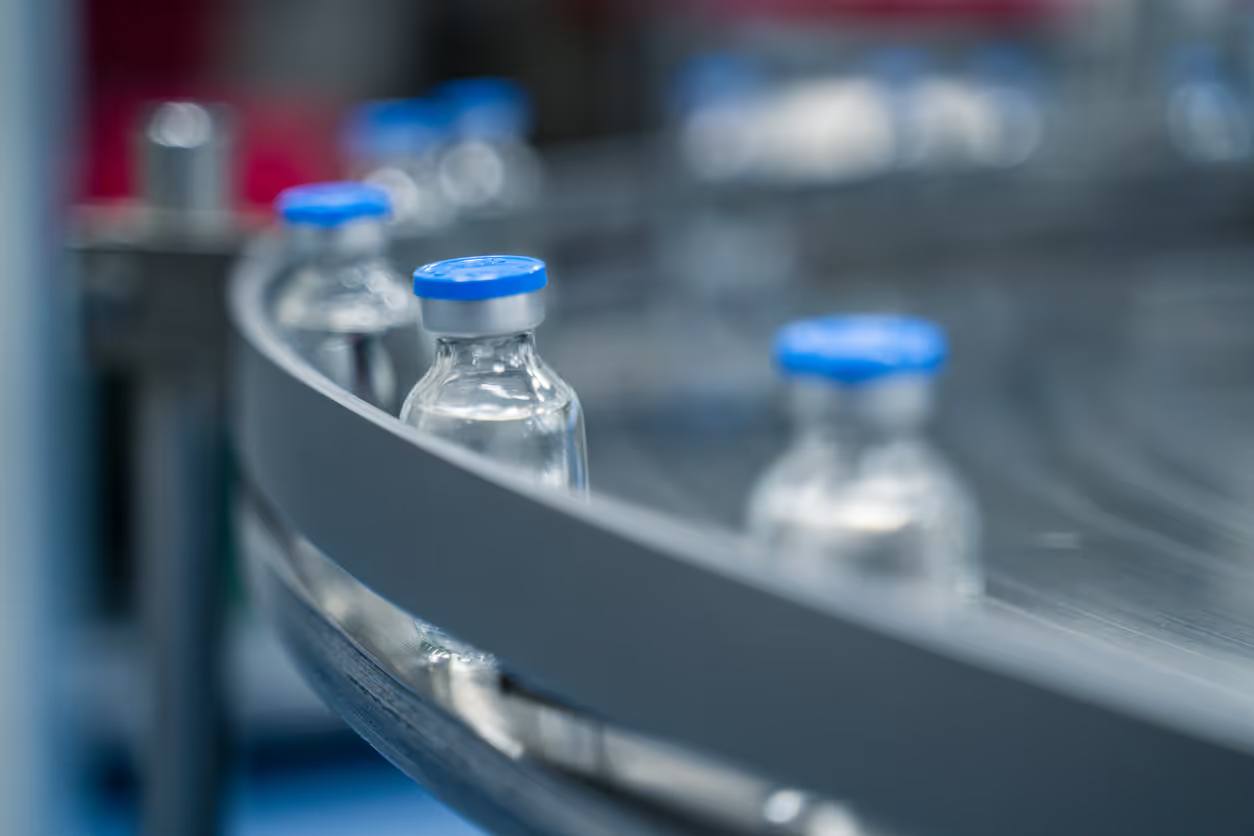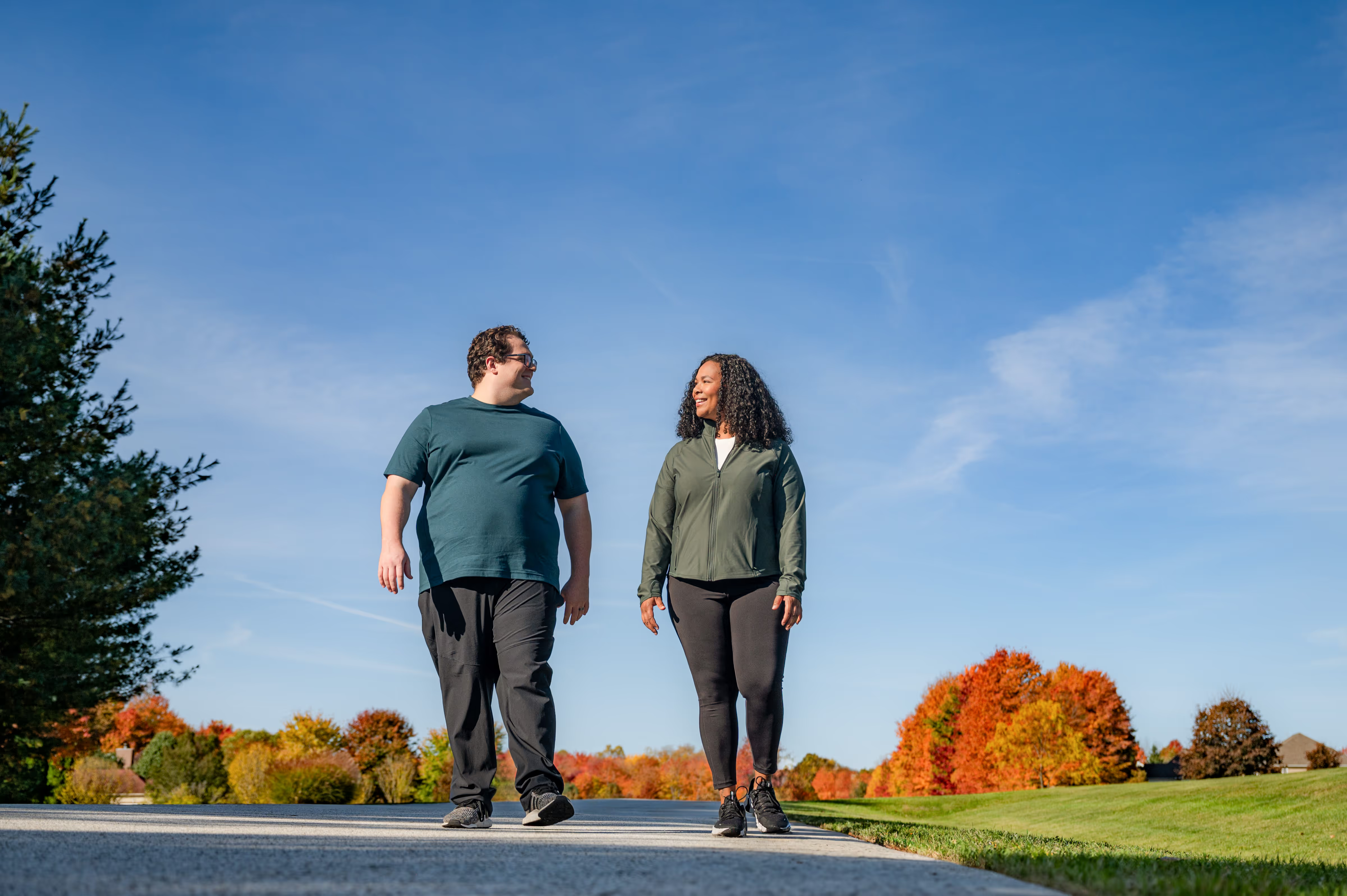It’s not uncommon for a patient to tell me they are eating very little, but still not losing weight. Or have even experienced weight gain. They’re frustrated and understandably so. We’ve been taught that it’s as simple as “calories in and calories out” to lose weight, but this doesn’t always translate in real life. As a result, people start to question if their diet is too restrictive and that’s why they are gaining weight despite cutting back; a concept known to many as “starvation mode”. But does not eating enough really make you gain weight?
The simple answer is no. There is no research to support the concept that not eating enough (or severe calorie restriction) can cause you to gain weight. Time and time again research has shown us that when we eat fewer calories than what we burn, we lose weight. The opposite is true as well - we gain weight because we are eating more calories than we burn. However, the application of this in real life to produce weight loss is much more difficult than it sounds and there are a number of reasons why.
Energy balance: calories out
Let’s first consider the “calories out” part of the equation, or how many calories we burn in a day. This is known as your total daily energy expenditure and it’s made up of 4 components:
- Resting Metabolic Rate - number of calories you burn at rest.
- Thermic Effect of Food - number of calories you burn when digesting food.
- Physical Activity - number of calories you burn during exercise.
- Non-exercise activity thermogenesis - number of calories you burn during activity that is not eating, sleeping, or exercise (such as carrying in your groceries or fidgeting at your desk).
Each one of these components varies significantly from person-to-person. We have equations to help us predict our resting metabolic rate (RMR), but they have been found to be largely inaccurate for most people. The inaccuracy likely has to do with not accounting for such things as genetic variability, how much sleep we get, medications we’re taking (e.g. beta blockers, gabapentin, antibiotics, and more), our gut microbiome, and even whether or not we’ve lost weight in the past. To get an accurate measure of RMR, you would need to have an indirect calorimetry test, which is costly and not widely available outside of research settings.
The other three components listed here are going to vary day-to-day. For example, the thermic effect of food is affected by what you eat. If you have a meal that is higher in protein, the number of calories burned digesting that meal is higher than a meal composed of carbohydrates and fat. Our meals change daily, so how could we ever be 100% accurate in our prediction of the thermic effect of food? And that’s just one part of the total daily energy expenditure equation.
It’s also important to consider the physical activity piece. It is very difficult to accurately measure the number of calories we burn during a workout if you’re not exercising in a research setting. Using various online calculators, apps, and even what is provided to us on cardio equipment is likely inaccurate and, for many of us, overestimating our true calorie burn. These measurements are based on an average and do not account for variability between individuals, which is significant. Even if you enter your weight to try to improve accuracy, your body composition (ie. fat mass versus muscle mass) can affect how many calories you burn during a given activity and is not something that is usually part of the calculation.
Bottom line: It is difficult to know exactly how many calories you burn in a day given significant individual variability and the fact that there is a lot of estimation used in these calculations.
Energy balance: calories in
The other part of the equation, the “calories in” part, is also imperfect. Even if you account for every last crouton on the top of your salad in your calorie count for the day, you’re likely starting with imperfect information. This is because the calorie count on a food label may be inaccurate. In a 2013 study, researchers found that the carbohydrate and calorie content of a group of common snack foods was higher than what was listed on the label. There have also been studies that show a difference between what the label says and the amount of calories that we actually absorb, making it difficult to know our true caloric intake.
We should also consider that not all food has a label that tells us the serving size, so we’re left guessing. Take a banana for example. When you put “banana” into a calorie tracking app, it gives you the calories in one medium banana with the option to choose a different size or another measurement like 1 cup or 1 gram. But how much is 1 gram of banana? Even if we choose 1 medium banana - how big is that? I don’t know about you, but I don’t typically have my tape measure with me when I purchase or eat a banana. So our calorie counting has estimation involved and that leads to an imperfect calculation for the “calories in” part of the equation.
Bottom line: It’s difficult to calculate exactly how many calories we consume for multiple reasons.
What is metabolic adaptation?
To complicate things even further, there is the concept of metabolic adaptation. This is an important concept for anyone who is trying to lose weight to understand because it helps to explain at least in part why weight loss and weight loss maintenance can be so challenging.
When you lose weight, there is a decrease in your total daily energy expenditure. This happens because you’re a smaller person now, so you don’t use as many calories to maintain bodily functions. But the drop in energy expenditure is actually even greater than we would predict for the change in weight. This is a defense mechanism that your body has in place to resist further weight loss. You see, from an evolutionary perspective weight loss isn’t necessarily a good thing. Our bodies interpret this as a lack of access to food and put mechanisms into play to preserve fat and nutrient stores to make sure you survive.
At the same time, appetite hormones change in a way that makes you feel more hungry or think about food more often. It’s your body’s way of encouraging you to eat something so that you don’t starve. Another evolutionary defense mechanism in place that encourages you to fuel your body to survive.
Metabolic adaptation makes weight loss and weight loss maintenance more challenging, but efforts to lose weight are not a lost cause. Countless studies have shown that people can successfully lose weight and keep it off, and there are strategies that can be implemented to offset the changes in energy expenditure and appetite to help you to be successful. Dr. Emily Smith, a board certified Obesity Medicine Physician at Form Health says, “Because all of our bodies respond differently to a reduction in caloric intake, the equation for weight loss is not simple and the approach to weight loss needs to be individualized.”
So, can you gain weight from not eating enough?
Now that you understand how hard it is to truly know how many calories a person is taking in and burning up, and all of the mechanisms our bodies use to defend our weight, let's circle back to our original question about whether eating too little can cause you to gain weight. Some people have proposed that because our bodies shut down calorie burning to preserve our nutrient stores, if you eat very, very little, you can shut down the burn almost completely, and then in fact gain weight. However, research has not proven this to be the case. It is a very elegant system and as you now know, if you are eating so little that your energy burning is shutting down, your hunger hormones would be driving food-seeking behaviors. Plus, food gives us not just the calories but also the nutrients, vitamins and minerals we need to be healthy. In almost all cases, purposefully eating less than experts recommend is not going to be a healthy weight loss strategy, but working with experts to reduce calories and optimize nutrition in a healthy and sustainable way will produce weight loss.
How Form Health can help you reach your weight loss goals
If you’ve tried diet and exercise to lose weight, but are still not having success or even gaining weight, Form can help. You will have a thorough assessment from a Board Certified Doctor to ensure that there aren’t other factors contributing to your weight gain, such as certain medications or medical problems. Your physician can also prescribe medications, if appropriate, to help with the appetite changes that occur when you reduce your calorie intake. You will also be paired with a Registered Dietitian to create a personalized plan that includes guidance on how to properly reduce your caloric intake in a way that gets you results, and is sustainable. Find out if you are eligible by taking our quiz now.




